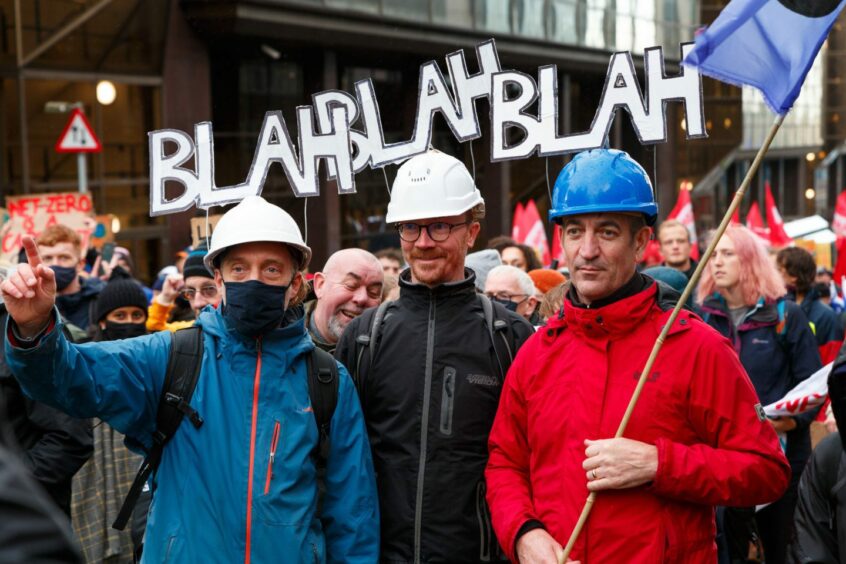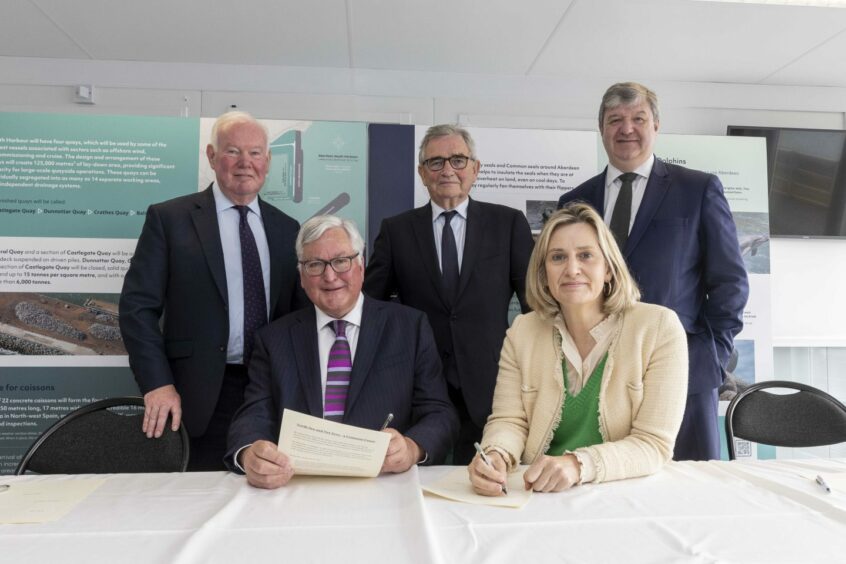
Setting targets is one thing and meeting them is another. That is the underlying message on which the latest, highly sceptical report by the Committee on Climate Change is built.
The report says bluntly that the UK far off course for meeting the net zero commitment.
Scotland is particularly fond of setting targets, invariably a little more ambitious than those of the UK Government, and equally regularly failing to meet them. The report suggests that much could be gained if the governments would work together to meet shared ambitions.
The report is a weighty document with 300 recommendations for the UK government and devolved administrations. That reflects another reality which is often ignored, particularly by single issue campaigners. Meeting targets does not depend on any one measure. The whole machinery of government has to be in action, with every cog turning in roughly the same direction.
This year’s surge in energy prices has made all of this a lot more urgent. On the surface, it can be used as a cop-out from meeting the emissions challenge. All of that will have to wait, the argument goes, because it is going to add to people’s fuel bills at a time when they are soaring anyway. The Committee on Climate Change gives short shrift to that line of thinking.
Pursuing net zero, it argues, can be the route to lower costs, not higher. One key lies in the insulation of homes and other buildings. Our failure to take that seriously in recent years has been a major failing in energy policy for which a price is now being paid. The cheapest form of energy, after all, is the stuff that isn’t used.
It is remarkable that a decade ago, over two million houses in the UK were being retrofitted with insulation each year while the figure has fallen to barely a tenth of that number. How this, in the eyes of any government, squares with net zero rhetoric is hard to fathom.
Even stranger is the fact that houses are still being built which will in future need to be retrofitted. Yet I can well believe this. For a brief period 20 years ago, I was the UK Minister with responsibility for construction and I well remember its resistance to anything they thought would push up costs.
Every big house-building company had a showpiece development to demonstrate to visiting Ministers and the like their commitment to environmental responsibility and innovation. As for the rest of their stock, they just got on with what they preferred, which was to reduce all that costly stuff to as little as they could get away with. It seems not a lot has changed.
That is an example of how there must be total co-ordination across government to deliver the hugely challenging agenda which net zero targets demand. Yet the Committee on Climate Change lists some of the cross-cutting measures that simply haven’t happened. On the “cross-cutting enablers” it states, “there have been warm words but little progress”.
For example, the Treasury “must urgently review its tax strategy to support the Net Zero transition”. Not much sign of that! There needs to be “comprehensive reform of planning legislation to reflect commitments to net zero”. Few renewables developers who deal with the planning system will recognise that happening. And so on.
In my eyes, one of the most fundamental criticisms is that “there is no public engagement strategy three years after the Net Zero target was signed into law”. This is true of both Scottish and UK governments. Random measures may be vaguely linked to environmental ambitions but there is no sense of a joined-up crusade to reconfigure our economy or lifestyles.
Last month I joined up with a cross-party group of politicians, past and present, to sign a declaration in Aberdeen which stated that the North Sea should be seen as a key to the Net Zero transition rather than its deadly enemy. I believe that was consistent with the Committee on Climate Change’s call for public engagement and joined-up thinking.
It is very easy to be against developments in the North Sea but, in isolation, that would change absolutely nothing – except in the sense we would become more dependent on imports at a higher environmental cost. The egg must come before the chicken and that means reducing demand, rather than unilateral self-harm which targets only the source.
Another crucial delivery shortfall that the Committee on Climate Change highlights is the skills gap. If the renewables sector, particularly offshore is going to grow in the way we all hope, then skills developed in the offshore oil and gas industry need to be harnessed, not sidelined or dispersed. The commercial opportunities will exist in renewables but if we don’t have the labour force, they will again pass us by.
Similarly in the energy efficiency sector, the report estimates that 60,000 people are required – good jobs doing a socially vital role. But there has to be a strategy for funding and delivering this outcome which involves both public and private sectors.
Energy efficiency should become a crusade but you cannot have a crusade without foot-soldiers to take part in it. So where is that workforce going to come from?
Few of us will read all 300 recommendations but the fundamental point cannot be missed. The targets are great but the delivery is far off the pace. We need government at all levels to be working together to change that – and maybe if the public saw that happening, instead of the constant search for division, the message would get across that we are all in this together.
Brian Wilson is a former UK energy minister.
Recommended for you

 © Shutterstock
© Shutterstock © Derek Ironside/ Newsline
© Derek Ironside/ Newsline